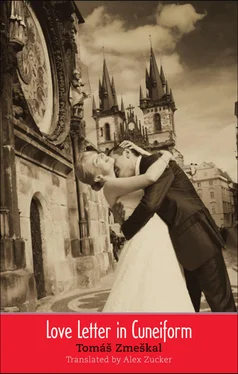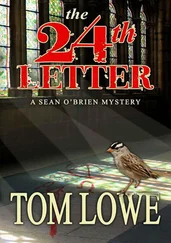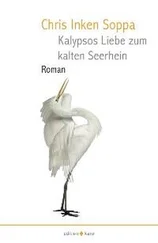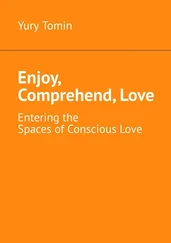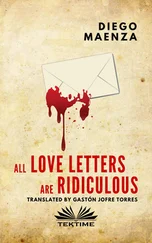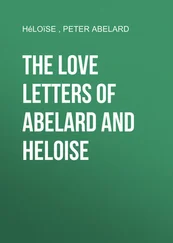One of the signs of old age, Lieutenant, at least in my case, is that your brain ceases to be rational. More and more I’m subject to my emotions and moods, and worst of all, once I enter down the path of one of those mental processes, which are still for the most part new to me, I never know when or where it will end. It’s a journey into terra incognita, and even though in any unfamiliar terrain there are always makeshift landmarks you can use to help determine your spatial coordinates, at my age, with my old man’s emotions, I’m afraid it just isn’t possible. Instead, it feels more like a desert, where any orientation point, any system of triangulation, is constantly changing and therefore can’t be used to map your position. Although the fact is that even the Sahara Desert is nearly ninety percent rock, which most people don’t realize, and therefore even my second comparison above would seem to be unfounded. It seems to me that just as there is no universally accepted method for measuring the magnitude of pain or love, I lack a suitable and properly calibrated instrument with which to measure my feelings.
Assistant Lecturer Horský taught us at university, and sometimes he would also tell us stories about his travels in Syria and other parts of the Middle East. He had been there as a young man with Professor Hrozný, the scientist who deciphered the language of the Hittites. He told us about how they made him responsible for technical oversight of the project: surveying existing conditions, producing a basic mapping of territories, drawing site plans, and also collecting beetles. Really! He was an engineer who collected beetles. He said that was the hardest and most demanding part, since he didn’t like beetles, but the head of the beetle division at the National Museum had asked him to do it, since the museum didn’t have any beetles from those parts yet. Frankly, I wasn’t too interested in Assistant Lecturer Horský’s adventures in Turkey and Syria. But then one day, as he was ending his lecture, he veered off again into the Turkey of his youth with the words: “The date November 24, 1915, will be forever — remember, forever! — engraved in the history of Czechoslovak and world science,” and I woke from the state of half-sleep in which I spent most of my afternoon lectures. Here allow me a small detour to say that up until my imprisonment, I had always passed the hour between two and three P.M. engaged in a light afternoon nap. Unfortunately, this regular habit of mine came to an end the day I was imprisoned. As I stated above, I am still incapable of falling asleep in the afternoon to this day, even in the most favorable environment. The truth is I fear I might have unpleasant dreams related to those ten years I spent behind bars. But back to Assistant Lecturer Horský. Occasionally his lectures happened to fall precisely from two to three P.M., in which case I was obliged to forgo my afternoon nap, although I would doze all the way through the lecture. But all of a sudden the date he mentioned, November 24, 1915, woke me up. That was the day I was born. “What happened that day?” I asked, incongruously torn from my slumber. Assistant Lecturer Horský gave me a suspicious look and said in a voice laden with irony: “Apparently you have been absent more than once, Mr. Černý, or you would know that was the day of Professor Hrozný’s immortal lecture at the German Oriental Society in which he solved the riddle of the history of the Hittite state, culture, and literature — all of this, if you please, gentlemen, through his decipherment of a language previously unknown, albeit written in cuneiform script, which at that point was known. A deed worthy of a genius, gentlemen, and it is our privilege to be able to walk the same streets of Prague as Professor Hrozný.” It was the same date. The date of his lecture was the date of my birth. A few days later I told Květa and she was even more intrigued than I was. “Don’t you think it’s interesting?” she asked. “I do, but it’s just a coincidence,” I said. “All right, but what did he actually discover?” “He didn’t discover anything, he deciphered it,” I said. “What?” Květa asked. “A language, a language nobody knew.” “You can do that?” “I suppose so. If he did it, that means you can.” Květa couldn’t get it out of her head. She was so obsessed she went to the library and took out a book on ancient cultures and languages. It gave the same date as Assistant Lecturer Horský had told us: November 24, 1915. My date of birth. The day I was born was the same day Professor Hrozný showed the world a new language. It’s no mean feat, deciphering a three thousand — year — old language, I’m telling you, Lieutenant. And this wasn’t the Latin alphabet, this was in cuneiform. Hittite was the oldest Indo-European language preserved in written form. Truly an accomplishment. The history of the Hittite people. Their gods, their laws, their lives. Weddings and funerals, rewards and punishments, battles and wars, won and lost … Language is the key to all these things, but what good is it when their empire died out twelve hundred years before the birth of Jesus Christ?
Cuneiform? The first time I saw those odd wedge-shaped marks, they looked to me like waterfowl tracks. Like footprints of birds with webbed feet. Much smaller, though. Like some sort of aquatic sparrows. The characters of cuneiform script were made using a cut reed as a stylus and pressing it into moist clay. The marks it makes are wedge-shaped, hence the name cuneiform —from cuneus , “wedge,” and forma , “shape.” The script is said to have originated in Mesopotamia with the Sumerians, but it was adapted for use by many different languages, much like the Latin alphabet today. Whenever you aren’t sure about something and it happened a long time ago in the Middle East, just chalk it up to the Sumerians! Of course that’s just an old man’s inappropriate comment, Lieutenant, don’t pay it any mind. They say the Hittite documents written in cuneiform script represent the oldest Indo-European language. And for your information, Lieutenant, the Hittites inhabited the area covered by present-day Turkey and Syria, known in my youth as Anatolia.
So really the only reason for my interest in the whole thing was that Květa was intrigued by the fact that my birthday was the same day as Professor Hrozný’s famous lecture on deciphering the Hittite language. She had a better imagination than I did, she always has, and over time I learned not to oppose her using logical arguments and facts. It was easy, I didn’t even have to try that hard. You know, when she let loose her fantasy — or actually I should say fantasies, since she was overflowing with them — it was truly a beautiful thing. You could see the expression on her face change as she imagined what the people back then would have thought if they had known that someone would still be interested in them three thousand years after their death. Did it ever even occur to them the way it does to us? Did they talk about it when they were raising their children? Going into battle? Celebrating weddings? It may not seem too original to you, Lieutenant. I realize a lot of people have thoughts like these in certain situations, when they visit a museum, say, or tour a historical site. But when Květa talked about it, her eyes would get big as saucers one minute, then shrink to slits the next, and sometimes she would close them completely. I must say, I find it obnoxious when a person closes their eyes while talking to someone else. Few things irritate me more than lack of manners. But when Květa shut her eyes for a few seconds, Lieutenant, that was something entirely different, because the instant she reopened them, they were that much greener, that much bigger, that much deeper. I admit sometimes I didn’t grasp her conclusions and deductions, but I didn’t interrupt, even when her conclusions violated the simple logic of causality, a cornerstone of any objective argument. I was happy just to look at her, just to be able to watch. Initially I didn’t get it. It was like a spreading disease, a gradual surrendering of my own abilities, just to listen to her, just to watch, to look at her, be with her. Yes, the more she spoke about those things the more I loved her. Plain and simple, I loved my wife. There was nothing original whatsoever about my feelings. They were completely banal.
Читать дальше
